#Pulwama attack
Explore tagged Tumblr posts
Text
PULWAMA ATTACK 5TH ANNIVERSARY -
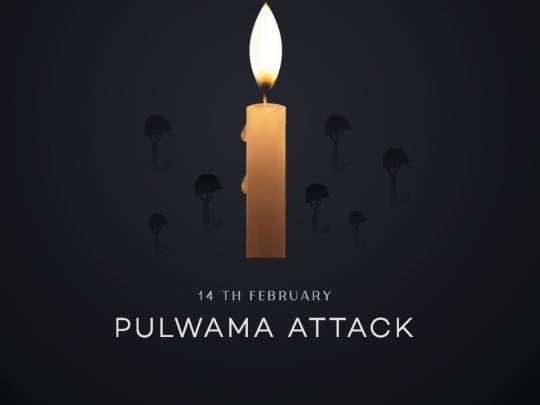
The Pulwama attack, which occurred on February 14, 2019, remains a somber reminder of the challenges faced in the fight against terrorism. On that fateful day, a suicide bomber targeted a CRPF convoy in Pulwama, resulting in the tragic loss of 40 brave personnel. The convoy, carrying over 2,500 jawans, was returning from leave or heading to deployment areas when the attack took place.
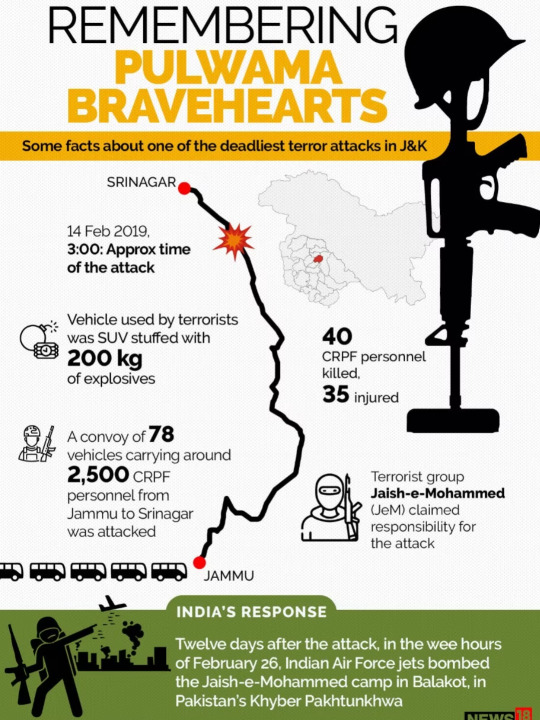
#desiblr#desi tumblr#pulwama#pulwama attack#desi tag#Indian soilders#black day#army#indian politics#indian#desi
106 notes
·
View notes
Text
Jay Hind 🇮🇳🙏
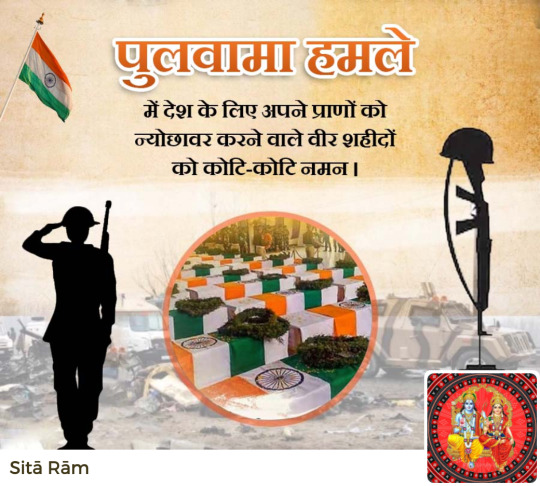
2 notes
·
View notes
Text

Never forget the sacrifice of our heroes in the Pulwama Attack. Their courage shines as a beacon of strength.
0 notes
Text

Never Forgive.. Never Forgot..
Tribute to our soldiers who lost their lives in the Pulwama attack
1 note
·
View note
Text
Fighter SUSPENDED in UAE after Gulf countries ban Hrithik Roshan-Deepika Padukone starrer
After Gulf countries ban Fighter, UAE also suspended its release.
Fighter, the highly anticipated aerial action film starring Hrithik Roshan and Deepika Padukone, has encountered an unexpected obstacle in the United Arab Emirates (UAE). While initially escaping the ban imposed on the film in other Gulf countries, Fighter has now been suspended in the UAE as well. This development comes amidst concerns surrounding the film’s narrative, which revolves around India’s response to the sensitive Pulwama terrorist attack.
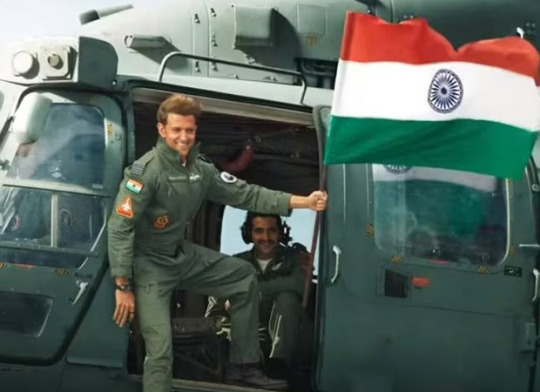
Fighter SUSPENDED in UAE after Gulf countries ban Hrithik Roshan-Deepika Padukone starrer
Fighter’s trailer, packed with action and patriotism, received praise for its technical brilliance and emotional resonance. However, the film’s depiction of the Pulwama attack sparked criticism from some sections in Pakistan, with accusations of the film promoting an “anti-Pakistan” agenda and “exploiting a sensitive issue.” This criticism, coupled with the film’s controversial theme, is believed to have played a role in the Gulf censor boards’ decisions.
Addressing the concerns, director Siddharth Anand urged viewers to watch the film in its entirety for context before forming an opinion based on the trailer. He emphasized that Fighter aims to raise questions about terrorism, not instigate animosity towards any nation. This sentiment was echoed by the lead cast, emphasizing the film’s message of unity against terrorism.
Despite the suspension in the UAE, Fighter will continue to play across theatres in India. Whether the film will resume its run in the UAE remains unclear.
Speaking of the film, besides Hrithik and Deepika, it also stars Anil Kapoor along with Karan Singh Grover, Akshay Oberoi and Sanjeeda Shaikh. It is jointly produced by Viacom18 Studios and Marflix Pictures.
#Banned#Controversy#Deepika Padukone#Fighter#Gulf Countries#Hrithik Roshan#News#Pulwama Attack#Siddharth Anand#Suspended#Terrorism#UAE#bollywood hungama
0 notes
Link
Pulwama Attack Black Day 14th February We pay our respects to the martyred soldiers on the fifth anniversary of the Pulwama tragedy Their self-sacrifice shall never be forgotten Jai Hind
0 notes
Text
Black Day
Day 6

0 notes
Text

Roses above the coffins are screaming angrily, and the tricolor around our soldier is weeping silently. Salute to all CRPF jawans of the Pulwama attack. Jai Hind!
instagram
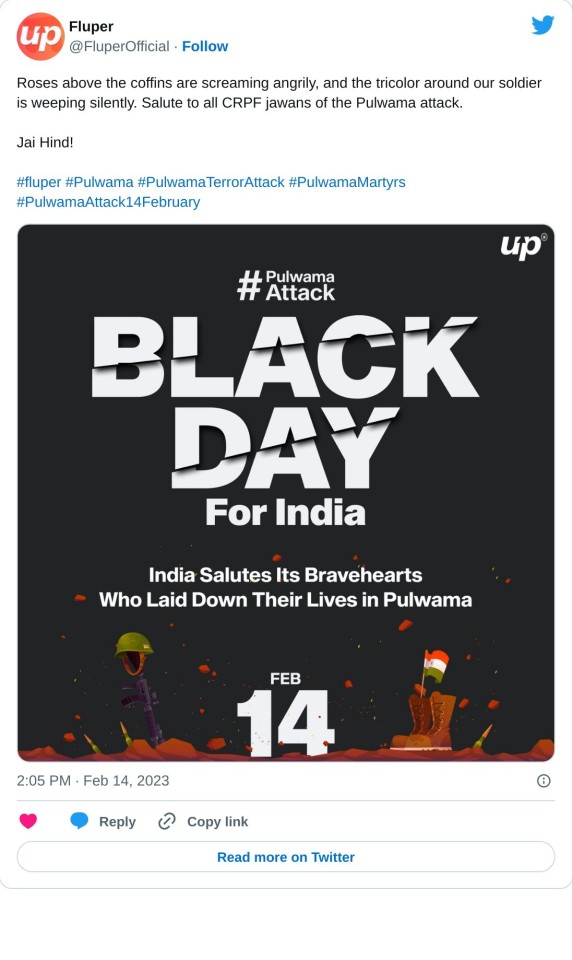
#fluper#mobileappdevelopment#android#technology#ios#pulwama attack#pulwama#kashmir#indian army#indian air force#crpf#Instagram
0 notes
Text
pulwama attack | pulwama attack black day | 14 feb pulwama attack | Jammu and Kashmir | Pulwama
Pulwama Attack Anniversary: Just remember the sacrifice… When the country was shaken by the Pulwama attack on this day, read the story of the martyrdom of 40 soldiers Pulwama Attack 4th Anniversary: Today it has been 4 years since the Pulwama attack. On this day, 40 CRPF jawans were martyred in the Pulwama suicide attack. In Pulwama, Jammu, and Kashmir, in the year 2019, the attacker hit the…
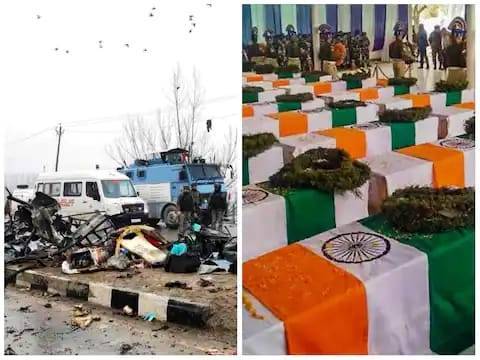
View On WordPress
0 notes
Text

Salute to the soldiers who were martyred in Pulwama Attack
0 notes
Text
"Remembering Our Heroes": PM Modi's Tribute On Pulwama Attack Anniversary
Their courage motivates us to build a strong and developed India, said PM Modi while paying tribute to the CRPF soldiers killed in the Pulwama attack.
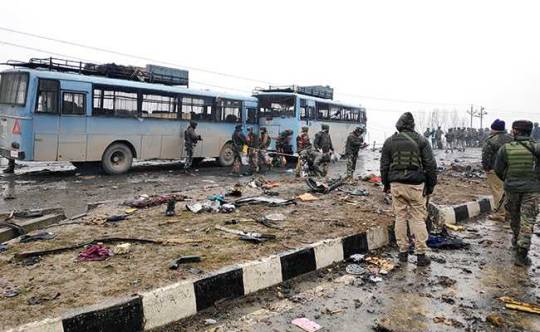
New Delhi: Prime Minister Narendra Modi on Tuesday paid tribute to the Central Reserve Police Force (CRPF) personnel who were killed in a terror attack on their convoy in Pulwama on this day in 2019.
He tweeted, "Remembering our valorous heroes who we lost on this day in Pulwama. We will never forget their supreme sacrifice. Their courage motivates us to build a strong and developed India."
Over 40 soldiers were killed after a suicide bomber rammed his vehicle into the CRPF convoy. In a retaliatory attack, the Indian Air Force targeted terror camps in Balakot in Pakistan.
0 notes
Text
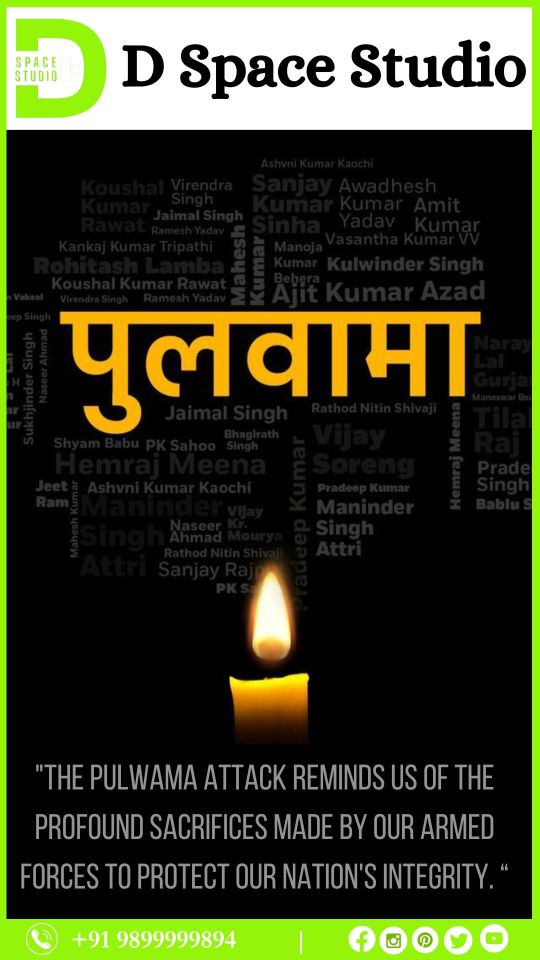
"Black Day: a testament to the human spirit's ability to endure."
#blackday#pulwama#pulwamaattack#armylife#army#attack#14february#Coworkinghub#Studio#Spacestudio#Delhi#virtuloffice#followforfollowback#likesforlike#ınstagood#follow#viral#post
0 notes
Text
पुलवामा हमले की चौथी बरसी आज, पीएम ने कहा- शहीदों का सर्वोच्च बलिदान मजबूत और विकसित भारत बनाने के लिए प्रेरित करता है...
14 फरवरी 2019 का दिन भारत कभी नहीं भूल सकता. भारत के लिए यह काले दिन की तरह है. एक तरफ जहां आज दुनिया भर के लोग वैलेंटाइन डे (Valentine Day) मना रहे हैं, वहीं भारत इस दिन शहीद हुए अपने शहीदों को याद करेगा. यह दिन भारत के लोगों को झकझोर कर रख देती है. दरअसल, इसी दिन साल 2019 में पुलवामा में आतंकी हमला (Pulwama Attack) हुआ था. आज इस हमले के 4 साल (Pulwama Attack 4th Anniversary) हो गए हैं. आज पूरा…
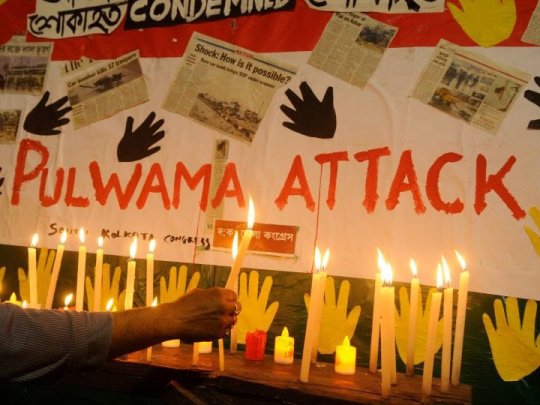
View On WordPress
0 notes
Text

Remembering the fallen heroes of the Pulwama attack, a somber reminder of the sacrifices made by our brave soldiers
0 notes
Text
Pulwama Terrorist Attack: A Tragic Incident that Shook India #Pulwama #TerroristAttack #India #JaisheMohammed #Pakistan #AirstrikePulwama #PulwamaAttack
The Pulwama terrorist attack was a tragic incident that took place on February 14, 2019, in the Pulwama district of Jammu and Kashmir, India. The attack was carried out by a suicide bomber belonging to the Pakistan-based militant group Jaish-e-Mohammed (JeM). The attack resulted in the deaths of 40 Indian security personnel and was one of the deadliest terrorist attacks in India in recent…

View On WordPress
0 notes
Text
Five years since Indian Prime Minister Narendra Modi’s government stripped Jammu and Kashmir of its autonomous status, the central government’s iron-fisted approach to the region has left it more vulnerable to regional and geopolitical threats.
While Kashmir Valley, which has withstood the brunt of armed insurgency since 1989, continues to simmer with militancy-related violence, the theater of terrorism has now extended into the otherwise peaceful province of Jammu. Since 2019, at least 262 soldiers and 171 civilians have died in more than 690 incidents, including the February 2019 Pulwama terrorist attack. The unsustainable and disproportionate loss of lives underscores the risks to both regional stability and India’s national security.
In 2019, the Modi government revoked Article 370 of the Indian constitution, which granted the state of Jammu and Kashmir its special status, annihilating the contested region’s symbolic autonomy. Concurrently, the central government also imposed an indefinite curfew in the region and used internet shutdowns and arrests to control and suppress the local population. The result was a transformed landscape. Already scarred by militarization, Kashmir became enmeshed in barbed wire.
This undemocratic exercise, though later stamped and endorsed by India’s Supreme Court, has since spurred further legal changes. For example, the local population no longer has access to exclusive protections that previously allowed only permanent residents of Jammu and Kashmir to apply for government jobs and buy property in the state.
In March 2020, the government repealed 12 and amended 14 land-related laws, introducing a clause that paved the way for a development authority to confiscate land and another that allowed high-ranking army officials to declare a local area as strategically important.
Local residents are appalled at the ease with which government agencies can now seize both residential and agricultural lands in the name of development and security—enabling mass evictions and the bulldozing of houses that are disproportionately affecting Muslim communities and small landowners.
Meanwhile, the ecological fallout from introducing massive road and railway networks, coupled with the addition of mega hydroelectricity projects, is polluting riverbeds and causing villages to sink. Since 2019, there has been a lack of local representation which could act as a buffer against massive development projects, most of which now fall under New Delhi’s governance. Meanwhile, the region’s unemployment rate, as of 2023, remains high at above 18 percent, as compared to the national average of 8 percent.
Over the last few years, the Modi government has also squashed dissent in the region by redirecting the military to maintain surveillance and control of the civilian population. According to the Forum for Human Rights in Jammu and Kashmir, over 2,700 people were arrested in the region between 2020 and 2023 under India’s contentious Unlawful Activities (Prevention) Act and the Public Safety Act. Those arrested include journalists like Fahad Shah and Sajad Gul, human rights defenders like Khurram Pervez, and prominent lawyers like Mian Qayoom and Nazir Ronga.
Modi’s repressive policies have deepened the trust deficit between Kashmiris and the Indian government. The top-down administration has further sidelined local bureaucrats and police officers, further widening the gap between the central government and local ground realities.
All of this has not only pushed the local population into distress, but also jeopardized India’s already fragile relations with its two nuclear neighbors, Pakistan and China.
The Kashmir conflict, rooted in the 1947 partition of India, has led to three major wars and several military skirmishes between India, Pakistan, and China. And though the region has always been contentious—India controls more than half of the total land, while Pakistan controls 30 percent, and China holds the remaining 15 percent in the northeast region near Ladakh—Modi’s aggressive handling has further provoked its neighbors.
Following the revocation of Article 370, the region was split into two separate union territories—Jammu and Kashmir forming one and Ladakh forming another, with both falling under the central government’s control.
This redrawing of the region’s internal borders, which signaled New Delhi’s assertions of reclaiming the Chinese-occupied territory near Ladakh—as well as India’s increasing tilt towards the United States—resulted in a deadly clash between India and China in 2020 and another one in 2022. Despite diplomatic efforts to resolve tensions over the disputed Himalayan border, New Delhi has accused Beijing of carrying out “inch by inch” land grabs in Ladakh since 2020.
Meanwhile, Pakistan-administered Kashmir has been rocked by mass protests of its own this year, owing to the country’s political and economic crisis, exacerbated in part by the abrogation of Article 370. Those living in Pakistan-administered Kashmir fear that Pakistan may similarly try to dilute the autonomy of the region.
With refugees flooding in from Afghanistan on its west amidst Imran Khan’s standoff with the Pakistani Army, Islamabad has been on edge and looking for diversionary tactics. The deepening of Pakistani-Chinese relations, including military ties, has contributed to a volatile mix.
But Kashmir’s vulnerability has worsened partly because of India’s own tactical blunders, too. The last decade witnessed a spurt in home-grown militancy, but since 2019 the landscape has been dominated by well-trained militants from across the Pakistani border who have access to sophisticated weapons and technology.
Indian security forces, including paramilitaries and the local police, have turned a blind eye to these emerging threats, especially in the twin districts of Rajouri and Poonch along the border with Pakistan. It is in this area that the impact of terror attacks has been most felt.
The region is home to the nomadic Gujjar-Bakerwal communities and the ethnolinguistic Paharis. These groups are parts of divided families straddling the India-Pakistan border, and this shared cultural linkage between the Indian and Pakistani sides has been weaponized in the past by intelligence networks of both countries.
The Indian armed forces have historically relied on the Gujjar-Bakerwal communities for intelligence gathering in part because of their nomadic lives and deep knowledge of the region’s topography. However, since 2019, the evictions of nomads from forest lands, following the amendment of several land-related laws, as well as affirmative actions for Paharis, a rival ethnic group, have led to the disenchantment of the Gujjar-Bakerwals—and an eventual loss of traditional intelligence assets for India.
Another blunder has been the redeployment of troops from Jammu to the border with China in the northeast, following China’s incursions in Ladakh’s Galwan Valley in 2020. This has left Jammu dangerously exposed to militants who have been infiltrating the region from across the line of control on the western side and carrying out their operations with a fair degree of success.
In 2024 alone, Jammu has witnessed numerous attacks which have resulted in the deaths of 16 soldiers and 12 civilians. In June, for example, the region experienced one of its deadliest attacks when militants opened fire on a bus carrying Hindu pilgrims, killing nine and injuring over 30.
Kashmir’s internal politics has the potential to spill over and push the region into disaster. While India has made some significant strides in international diplomacy under Modi, it tends to neglect the neighborhood where the risks to India’s national security remain the highest. Its diplomatic engagement with China comes in fits and starts but diplomacy with Pakistan remains nonexistent, despite the resumption of a ceasefire in 2021. And while India considers the removal of Jammu and Kashmir’s special status an internal matter, Pakistan sees it as a provocation. All in all, there is a dangerous lack of engagement between the two nuclear rivals in South Asia.
In theory, the ongoing regional elections in Jammu and Kashmir provide a glimmer of opportunity for the people to choose their own local government for the first time in a decade. However, irrespective of who wins the elections, the local leaders will lack the power to enact meaningful change, given that the region remains under the control of New Delhi following its demotion from a state to two union territories.
For instance, Ladakh does not have a legislative assembly, and while Jammu and Kashmir have an elected assembly, the real powers are vested in the hands of a governor, who was appointed to lead the region by the Modi-led central government. As recently as July, the Indian government ruled to further expand the governor’s oversight powers, delivering a blow to local politicians and voters.
Much more needs to be done to change the status quo. Though it remains unlikely, New Delhi must consider meaningful solutions that could assuage some of the political wounds inflicted by the complete erosion of Jammu and Kashmir’s autonomy, including, for example, the restoration of statehood to the region. In order to win back the trust of Kashmiris, the Indian government must reinstate civil liberties and deliver on its promise to provide economic development and jobs.
To improve the region’s safety, Indian agencies must acknowledge their security lapses and repair their broken intelligence networks. And while the Indian security forces must not lower their guard against terrorist activities, terrorism should not be proffered as an excuse when it comes to the normalization of relations in the neighborhood.
Neither Pakistan, nor India can afford the war which is looming over their heads. Diplomatic negotiations, including over Kashmir, must begin with a sense of urgency.
3 notes
·
View notes